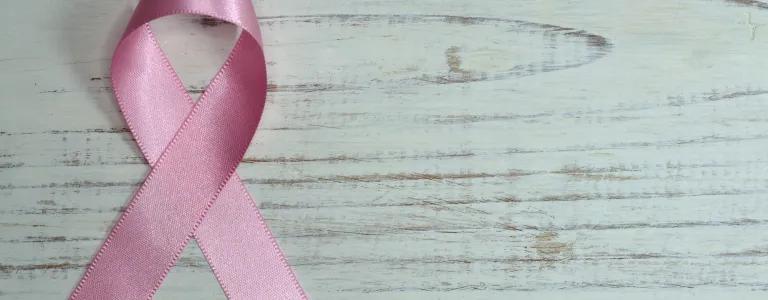
Show Your Boobs Some Love...
October is Breast Cancer Awareness Month all around the globe. So we thought we’d speak to award-winning research dietician, Dr Michelle Harvie, from Prevent Breast Cancer UK, for some top ta-ta checking tips, and some potentially life-saving advice...
Hi Michelle, can you tell us more about what you do at Prevent Breast Cancer?
I study the links between diet and lifestyle, and the risk of breast cancer. I look at specific factors and their importance, and from there figure out how people can change their lifestyle to reduce their risk.
What are the latest facts and figures you can give us?
In 2014-2016, the average number of new invasive breast cancer cases in the UK was 55,213. So quite a big number. But, the good news is, the survival rate for women, for 10 years or more, is 78%!
That’s definitely down to the research being carried out every single day by you and countless others. What are your latest findings?
Well, there’s more and more evidence that what we do when we’re young can increase or decrease our risk of breast cancer in later life.
Ah ok, what increases our risk?
There are three main factors. The first is a little out of our control – rapid growth spurts. Women growing more than 9cm a year, as opposed to those growing around 7cm a year, increase the risk of breast cancer in later life. These growth spurts most commonly occur in children who have high animal protein and high calorie diets, so changing what we eat can help.
And then there’s alcohol and smoking. Alcohol doesn’t need to be avoided totally, but the more you drink, the more at risk you are. So it’s about being conscious of how much, and how frequently, you’re doing it.
And of course, we all know we shouldn’t smoke, it’s always a risk. We suggest people quit (even though it’s hard), but that’s because smoking as a teen increases your risk of breast cancer by 23%.
And what can we do to decrease our risk?
Again, it’s about looking after ourselves! Exercising is a huge factor in decreasing risk. The lowest rates of breast cancer are seen in women who are continually active from childhood.
For women who have a BRCA mutation (BRCA are genes that produce tumour suppressor proteins. When they’re mutated, these proteins don’t function properly), being active delays the age they’re diagnosed. 50% of women who haven’t been particularly active are diagnosed by the age of 40. But 50% of those who were active teens are diagnosed at 50 years old.
Simple changes to our diets, like introducing three to four portions of soy products a week, reduces your risk of breast cancer by 30%.
Such simple changes for such a big impact! Is there anyone who’s most at risk?
Not really. Risk always increases with age, but by doing the things we’ve talked about, your risk decreases. One third of breast cancer is linked to our genes, but women with a family history of cancer can also reduce their risk by switching up how they live. And although men can also develop breast cancer, it’s not in the top 20 most common cancers for them. There were only 360 new cases found in 2016.
What advice do you have for figuring out what’s normal and what’s not when it comes to our boobs?
First of all, your breasts are your friends. Get to know them! Take a look in the mirror and have a good feel. 23% of UK cases are preventable, so it’s very important to pay attention to your body and get yourself checked if you think something’s different. And watch our video on how to give yourself a proper check over:
So just keep having a feel then! Are there any myths when it comes to breast cancer?
Lots of people seem to think bras have some sort of link to breast cancer. They don’t. Underwires or wearing the wrong size have no effect on your risk…... they’re just going to be uncomfortable! And there’s no need to avoid milk and dairy - in fact, an extra portion of dairy every day actually reduces your risk by 5%. So a little bar of chocolate here or there…!
Thank you for all your tips and tricks. Any final bits of advice for our readers?
Keep moving. Eat healthy. And just try to look after your body (and mind) as much as you can.

